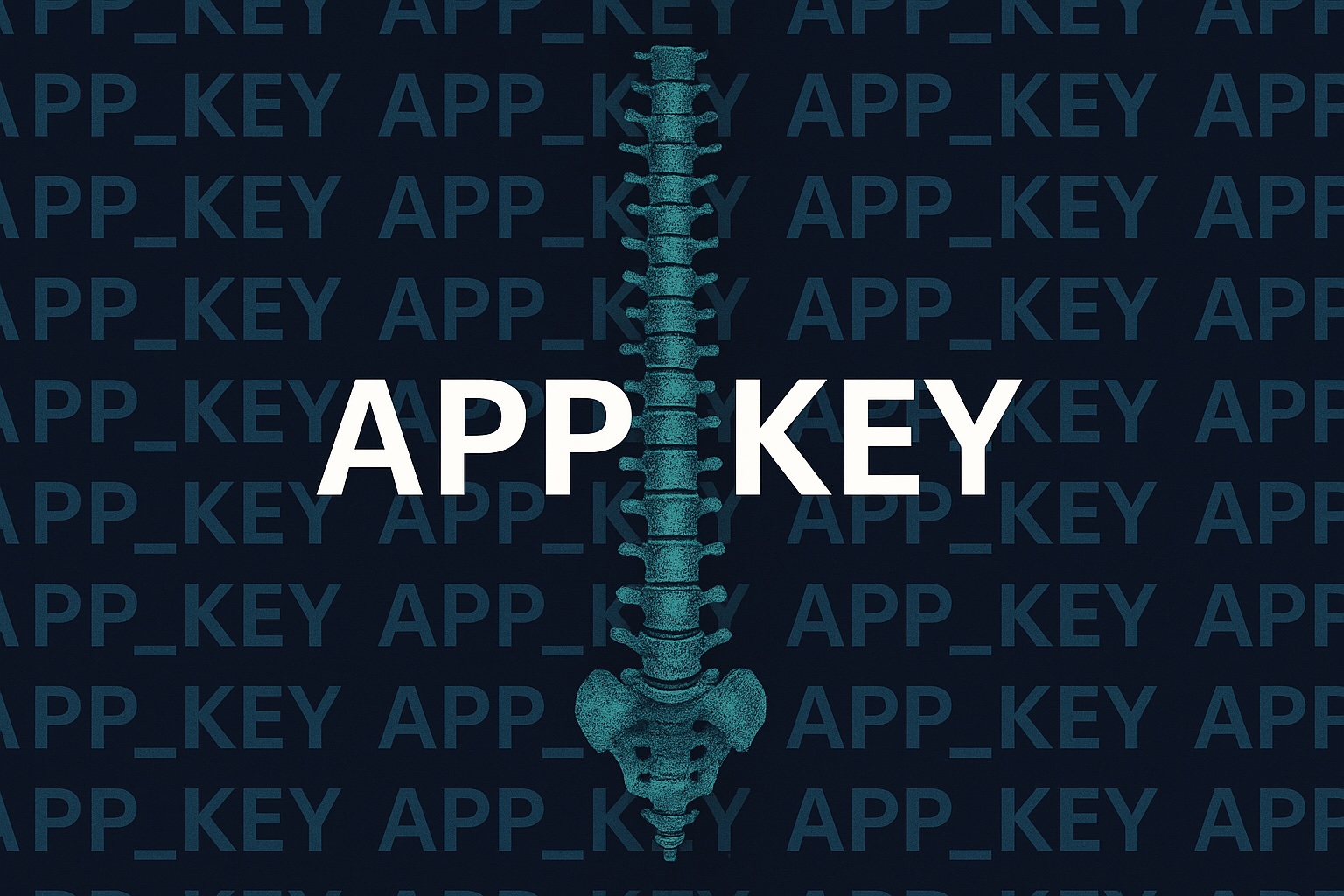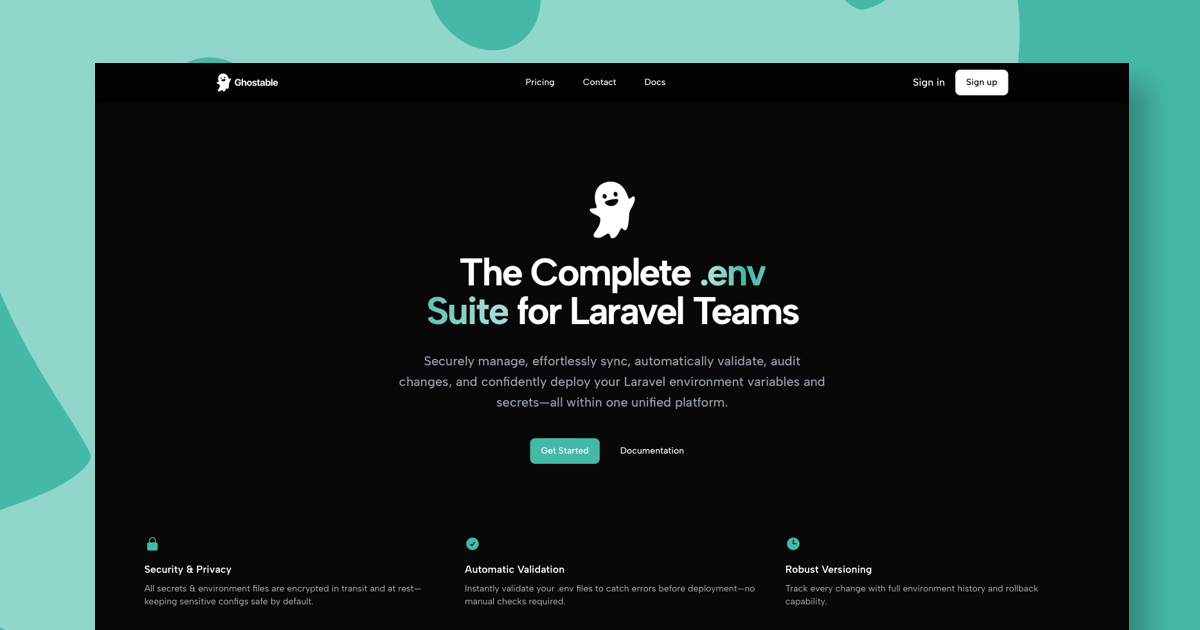What the Laravel APP_KEY Leak Means for Your App Security
In July 2025, researchers uncovered a critical issue that hit close to home for Laravel developers: thousands of Laravel APP_KEYs had been leaked into public repositories.

At first glance, this might not sound like a big deal—after all, the APP_KEY is “just” a configuration value in your .env file. But in reality, it’s the cryptographic backbone of your Laravel application. With access to it, attackers can forge cookies, hijack sessions, and in some cases even achieve remote code execution (RCE) on your servers.
This incident revealed how fragile secrets management can be when handled casually, and why Laravel teams of any size might need to rethink how they store, share, and rotate environment variables.
What Happened
Security research from GitGuardian and Synacktiv uncovered:
- Over 260,000 APP_KEY values publicly exposed on GitHub and other platforms, some dating back years.
- At least 600 live Laravel applications still vulnerable to direct exploitation.
- When both APP_KEY and APP_URL were exposed, attackers could directly target apps, decrypt cookies, and impersonate users.
- Developers often removed keys from Git after discovering the mistake—but failed to rotate them—leaving production systems insecure even after “fixing” the repo.
To make matters worse, Laravel’s decrypt() function unserializes data by default. Combined with leaked keys, this opened the door for deserialization-based RCE attacks.
Want a visual walkthrough of the Laravel APP_KEY leak? Watch Josh Cirre’s excellent video for more details.
Why It Matters
The Laravel APP_KEY isn’t just another config value—it is:
- The root of cookie and session encryption.
- Used in password reset tokens.
- Integral to any feature relying on Laravel’s Crypt facade.
A leaked key means an attacker can:
- Log in as real users by forging cookies.
- Hijack admin accounts without knowing passwords.
- Inject payloads that trigger remote code execution.
If your APP_KEY leaks, your entire app’s security model collapses.
How to Mitigate the Risk
If you’re managing a Laravel application today, here’s how you can defend yourself:
- Rotate Immediately ‐ If you’ve ever leaked an APP_KEY, don’t just delete it—rotate it everywhere. Update all environments (local, staging, production) using...
php artisan key:generate- Scan for Exposures ‐ Tools like GitGuardian or GitHub Advanced Security can flag secrets in repos, logs, or Docker layers. Set them up for continuous monitoring.
- Treat .env Files as Disposable ‐ Never commit .env files. Instead, treat them as local-only placeholders and inject values securely in staging/production.
- Harden Secret Usage ‐ Be cautious when using Crypt::decrypt() with user input—unvalidated decryption is an RCE waiting to happen.
How Ghostable Solves This Problem for Teams
While individual developers can patch issues by rotating keys and keeping .env files out of Git, teams face bigger challenges:
- How do you share keys securely without resorting to Slack messages or email?
- How do you track changes and rotations across staging, QA, and production?
- How do you ensure developers always have the latest valid keys without exposing them unnecessarily?
That’s where Ghostable comes in.

Centralized, Secure Vaults
Ghostable stores your APP_KEY and other secrets in a dedicated, encrypted vault—never in your repo.
-
Role-Based Access for Teams ‐ Control who can view, edit, or rotate secrets. Developers can pull what they need without risking full access.
-
Rotation & Version History ‐ Rotate a leaked key in one place and update all connected environments instantly. Need to roll back? Full version history is built-in.
-
CI/CD Integration ‐ Instead of shipping secrets in code, Ghostable injects them into builds and deployments at runtime—your servers always get the latest valid values, safely.
Taking Action Today
Here’s a simple action plan:
- Audit your repos for exposed .env files.
- Rotate your APP_KEY if there’s even a chance it leaked.
- Set up secret-scanning alerts in your workflow.
- Move to a dedicated secret management solution like Ghostable.
Security failures often don’t come from flaws in Laravel itself—they come from how we handle sensitive values. The recent APP_KEY leaks were a wake-up call for the community.
With the right practices—and tools like Ghostable—teams can prevent these mistakes and focus on building great apps, without worrying about leaked secrets lurking in their Git history.
Want product news and updates?
Sign up for our newsletter.